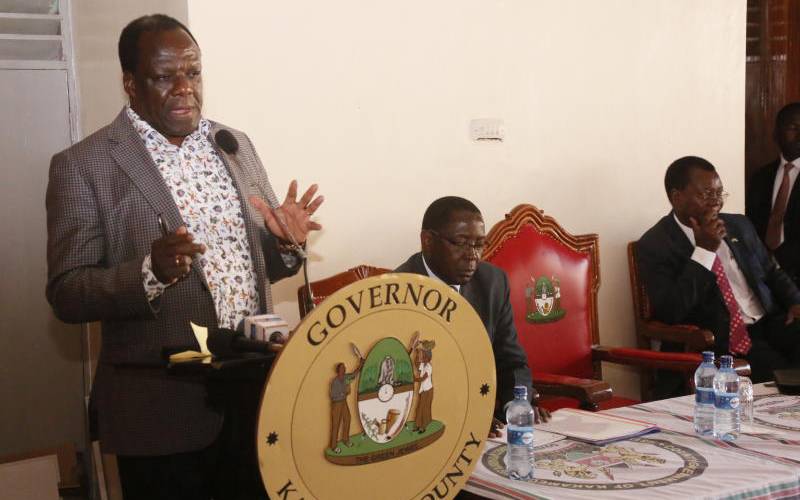×
The Standard e-Paper
Join Thousands Daily

Kakamega Country Governor Wycliffe Oparanya addressing County Executive members and Sub-County Administrators at the county headquarters on August 6, 2019. Oparanya sent his revenue clerks officers compulsory leave for 60 days and ordered CECs to take up their responsibility with immediate effect. [Benjamin Sakwa/Standard]
Kakamega Governor Wycliffe Oparanya on Tuesday sent all county revenue clerks on 60 days compulsory leave.